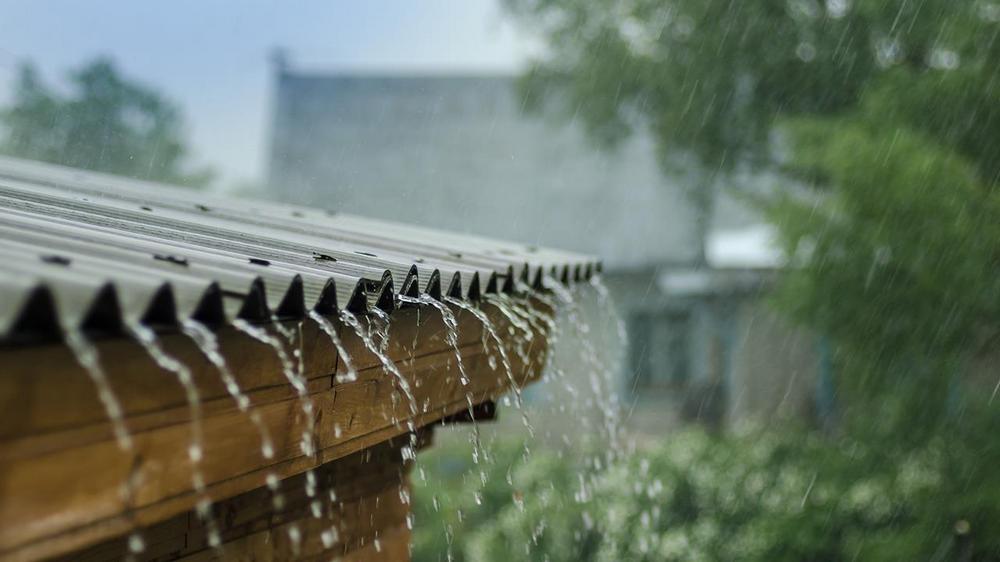
As the rainy season approaches, it’s essential that you adequately prepare your property to deal with it. The moisture content in the air significantly increases during the rainy season. It can easily damage your walls and cause seepage, fungal growth, damage to the foundations, and rot buildup around any wooden door or window frames. Additionally, gutters and drains are at an increased risk of overflowing, and water can even enter your home. You need to take pertinent measures on time and well in advance to save yourselves from costly repairs due to rain down the line. Here are six ways you can do so.
1. Inspect Your Roof
Your roof bears the brunt of heavy rains, so it must be sturdy and free of any leaks or cracks. Regular checkups and roof maintenance are essential and can save you from costly repairs down the line. Make sure you get the ceiling inspected, too, as it can indicate the presence of any cracks and subsequent leakage that might not be apparent from the outside.
If you have an asphalt shingle roof, ensure it has no missing shingles. Replace lost shingles, and re-nail loose ones to prevent leaks from your roof. It’s also essential that your roof’s flashing is intact. Ensure it has no holes or rusting spots so no water enters your home from small gaps during heavy rains. You can also add a waterproof coating to the roof to prevent leakage.
Additionally, you must keep an eye out for any mold growing beneath the tiles. Mold can trap moisture beneath the tiles, keeping the roof constantly wet and eventually causing its wooden components to rot, threatening the roof’s structural integrity. It causes several health issues as well. It’s best that you hire professionals like Northeast Home to analyze your roof for leaks and cracks every year before the rainy season and get them promptly repaired.
2. Inspect Electrical Wiring
Heavy rainfall damages the insulation of power lines and increases the risk of problems like power outages, power surges, blown fuses, and the disruption of voltage regulation. Ensure there aren’t any loose wires or broken switches and the circuit breaker is working properly.
Cover any exposed wires to prevent shocks, especially if you have children or pets at home. Make sure you don’t use scotch or duct tape to fix or cover these wires, as they are not made of proper insulating materials and might damage the wiring further. Use electrical tape, or let an expert technician handle the job. You should install surge protectors to keep your equipment and electronics safe during a power surge when lightning strikes.
It’s important to keep an eye on outlets near windows and semi-open areas, as they are most likely to suffer from water damage. A fire might break out due to short-circuiting if these sockets are exposed to moisture. It’s also essential to unplug the devices that aren’t being used to reduce the chances of them overheating and being damaged by frequent power surges during thunderstorms or heavy rain.
It would help if you also trimmed the branches of trees too close to the power lines, as those branches can fall on the power lines during heavy rainfall and cause a power outage. You should hire an electrician to check all the wiring before the rainy season starts to ensure your electrical systems are up to the mark.
3. Clean Your Gutters and Drains
Your drainage system protects your roof and house foundation from heavy rainfall, so it must retain its functionality when the rainy season starts. For this purpose, it must be clean and free of blockages before the rains begin.
It’s best to regularly get the pipes and drains of the system checked and get any cracks or leaks in the pipes repaired on time. Debris, such as leaves, twigs, and stones, can easily collect in your drains and gutters, hindering water flow and increasing the risks of waterlogging, overflows, and spills, damaging walls and footings.
Rainwater can enter the house through damaged walls and even cause extreme flooding. It’s essential that the drains around the perimeter of the house are adequately cleared and unclogged so that the water can flow away from the foundations of the house towards a sump pit instead of the basement, reducing the risk of basement flooding. You can clear out the drains by lifting the grates and removing any branches or leaves clogging them, or hire a professional to do the job through jet blasting and modern techniques.
4. Inspect Yard for Improper Grading
You must inspect your yard for any areas where water constantly pools up. This can indicate improper grading that will eventually damage the foundations of your house. If you notice such pools, contact a landscaping and drainage specialist and get the area inspected and fixed promptly so that the grading does not deteriorate further.
5. Protect Your Doors, Windows, and Walls
You must properly inspect your windows and walls for any cracks or improperly sealed areas and get them fixed. Ensure all windows and doors can open and close properly. Use a good quality foam or silicone sealant to close gaps between doors and windows. This will prevent water leaks and lower the risk of mold growth, swelling, and rot around the wooden frames of windows and doors. You can also put rubber seals at the base of your entrance and balcony doors to prevent water from entering the house.
Any cracks in your walls can easily allow water to seep in, causing fungal growth and eventually damaging walls and the foundations of the house. A way to identify areas where seepage might be present is to look for damp walls and peeling paint. If you find mold, scrape it away and use bleach and water to clean and disinfect the walls. Then apply a coat of waterproof paint.
Endnote
No matter how strong the foundations and structure of your home are, external elements are beyond one’s control, and heavy rainfall will always bring surprises. However, taking precautions like waterproofing your walls, sealing doors and windows, repairing your roof, and cleaning and unclogging the drainage system on time will significantly reduce the scale of damage. Make sure not to delay the necessary repairs and hire professionals whenever necessary.








